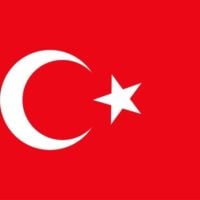Deadline: 30-Apr-23
GEOACT is pleased to launch a call for projects to strengthen education on natural risks at primary, secondary and higher levels.
Objectives
- Strengthen a Caribbean-based framework for education and research on geohazards and climate change.
- Improve primary, secondary and higher education on geohazards, in a Caribbean context.
- Promote a multidisciplinary approach where sciences that address geohazards and climate change are taught in Earth System-type programs.
- Promote education programs that include a strong socio-economic component and focus on how adaptation or mitigation solutions can guide R&I efforts.
- Improve intra-Caribbean exchanges of data, knowledge and experience on geohazards and climate change.
- Use digital technology to increase remote collaboration among primary, secondary and tertiary education institutions.
- Develop initiatives that can guide public policies in primary, secondary and tertiary education in the management of natural hazards and climate change.
Funding Information
- Grant: 150 000 EURO each proposal
Activities Funded & Expected Results
- Lot 1. Basic education (elementary/primary + high school/secondary)
- Design and distribute teaching materials in the different official languages of the countries of the Caribbean region for different audiences (NGOs, citizens, policy makers).
- Design and implement teaching, learning workshops and materials for the training of primary and secondary school trainers.
- Design and implement a teacher-training programme in close collaboration with university research centres and public authorities in charge of primary and secondary education.
- Develop a geohazard curriculum for the Caribbean in consultation with public authorities in charge of primary and secondary education.
- Design and implement learning through a variety of interactive activities: classroom demonstrations, fieldwork, etc.
- Optimise and make the best use of digital technology for innovative learning approaches.
- Deliverables:
- Innovative teaching/learning materials, methodologies and programmes for primary and secondary education.
- Lot 2. Higher education and research
- Design and implement a high-level multinational training framework for the best young R&I scientists at master’s level, focusing on geohazards and climate change.
- Optimise and make the best use of digital technology for innovative learning approaches.
- Design and implement an exchange platform where data, knowledge and experience (including on synergy) can be shared among primary, secondary and tertiary education institutions and other stakeholders.
- Establish a regional research team around geohazards and climate change.
- Design and support an institutional framework that fosters public/private partnerships in the R&I chain for geographical risk mitigation and climate change adaptation solutions.
- Deliverables:
- A Caribbean-wide knowledge base on geographical risks and climate change.
- Innovative teaching/learning materials, methodologies, and programmes for tertiary education.
- Master’s level training programme focused on geohazards and climate change.
Eligible Countries
- Applicants (legal entities) from the following OACPS Caribbean Countries are eligible to apply as Lead Applicant or Partners: Antigua and Barbuda, Bahamas, Barbados, Belize, Dominica, Dominican Republic, Grenada, Guyana, Haiti, Jamaica, Saint Kitts and Nevis, Saint Lucia, Saint Vincent and the Grenadines, Suriname, and Trinidad and Tobago.
Eligibility Criteria
- The Call for Proposals must be answered by consortia of several legal entities (public and private moral persons), and each consortium will have to be coordinated by a legal entity referred to as Lead Applicant, and the Lead Applicant will involve Partner Organisations in its consortium.
- A successful Applicant in this Call will be allowed to apply in other GEOACT Calls for Proposal, as Lead Applicant or Co-applicant, but the cumulative amount of the different grants it may receive will not exceed in any case 400,000 Euros (cf. GEOACT Grants Operations Manual).
- All participating organisations in a bidding consortium must check their eligibility, and the Lead Applicant is responsible for checking and guaranteeing the eligibility of the partners; if one of the partners appears to be ineligible, this may lead to the exclusion of the whole consortium/project during the evaluation process.
- The following entities are eligible for financial support as Lead Applicant or Partners: academic and research institutions/organisations; spin-off companies; VET providers; organisations representing indigenous and local communities; agencies and associations working for gender equality in research and innovation; national science, technology and innovation agencies; nongovernmental organisations; innovation support organisations (technology clusters, innovation labs and technology transfer offices); incubators and start-ups; and other similar organisations with specific experience in the priority areas covered by this Call.
- The Lead Applicant submitting the proposal as well as the Partners which belong to its consortium, should be moral persons.
- Only the Lead Applicants and Co-applicants with their headquarters and activities in an ACP Country from the Caribbean region, since 2017 at least, are eligible and can receive a grant under this Call. Organisations or individuals (scientists, researchers, entrepreneurs, policy actors, among others) from outside the ACP Caribbean Region can participate as “Collaborators” if their participation is duly justified in the proposal, i.e., if they bring specific skills or added value to the project. However, they will have to provide their own financial contribution to participate in the project, as they cannot benefit from the grant. Collaborators are not counted as part of the minimum of three eligible applicants.
- Lead Applicants applying to this Call must have the financial and technical capacity to manage the grant and will have to demonstrate this capacity: they must carry out / contribute to research and innovation activities and must have managed at least two R&I granted projects of at least €75,000 each between 2018 and 2022. They will be required to demonstrate adequate organisational capacity to implement and monitor the project in terms of human resources, as well as the ability to share and disseminate the results regionally through their networks.
- The Lead Applicant will submit the application on behalf of the consortium (One application per consortium) and will be directly responsible for the preparation, management and implementation of the project funded by the Call.
For more information, visit GEOACT.









































